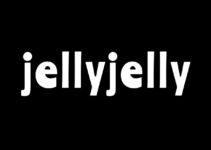Decentralized Autonomous Organizations (DAOs) are organizations that operate autonomously through smart contracts on a blockchain network. In recent years, there has been growing interest in using AI to enhance the functionality and efficiency of DAOs.

For some, the idea of a programmable AI control controlling the future of a DAO is questionable. However, it is a strong possibility for an ethically run and adaptive DAO. If we are to break free of the mythology that a DAO is self-sufficient and runs itself and doesn’t require centralized management/controls, then perhaps a silent partner of ethically created AI protocols can create an AI-run DAO that functions as a true DAO.
Then again, wouldn’t AI control mean centralized powers, and thus neutralizes true decentralization? Obviously yes, but if those controls are ethically run without the possibility of corruption, greed, or human error, then could this be a good substitute for today’s DAO setup?
How AI & DAOs Work
One way to use AI to run a DAO is by implementing machine learning algorithms that can analyze data and make decisions based on that analysis. For example, an AI-powered DAO could use machine learning to predict market trends and make investment decisions. This would make the DAO more efficient and effective than human managers, who may not have the same level of expertise or access to data.
Another way to use AI in a DAO is through natural language processing (NLP). By integrating NLP technology, a DAO could communicate with its members in a more natural and intuitive way. This could include using chatbots to answer questions or provide support. It can even allow members to vote on proposals using voice commands.
In addition to these technical applications, AI could also improve governance and decision-making within a DAO. For example, an AI-powered DAO could use data analytics to identify patterns of behavior or voting trends among members, which could help the DAO make more informed decisions about proposals or changes to its governance structure.
There are already some AI-run DAOs in existence today, although they are still relatively new and experimental. One example is SingularityNET, which is a decentralized platform for creating and sharing AI services. SingularityNET uses a DAO governance structure, which is run by a set of smart contracts that are managed by AI algorithms. The DAO members can vote on proposals using a custom AI-powered voting system, and the AI algorithms analyze the results of these votes to make decisions.
Another example is OceanDAO, which is a DAO that funds projects related to ocean conservation and sustainability. OceanDAO uses an AI-powered proposal evaluation system, which uses natural language processing and machine learning algorithms to analyze and rank proposals based on their potential impact and feasibility.
The Benefits of AI DAOs
AI can provide several benefits to community members in a DAO. Here are a few examples:
Improved decision-making: An AI-powered DAO can use machine learning algorithms to analyze data and make more informed decisions. This can help community members to make better decisions about proposals, changes to the governance structure, or other issues related to the DAO.
Enhanced Communication
An AI-powered DAO can use natural language processing technology to communicate with community members in a more natural and intuitive way. This can include chatbots that can answer questions or provide support, or even voice recognition technology that allows members to vote on proposals using voice commands.
Increased Efficiency
By automating certain tasks, such as proposal evaluation or voting processes, an AI-powered DAO can operate more efficiently and effectively. This can help to streamline the decision-making process and reduce the time and resources required to manage the DAO.
More Inclusive Decision-making
AI can help to make decision-making within a DAO more inclusive by providing data-driven insights into voting patterns or behavior among members. This can help to identify areas where certain groups may be underrepresented and allow the DAO to take steps to address these issues.
Greater Transparency
By using blockchain technology and smart contracts, an AI-powered DAO can provide greater transparency and accountability to its members. This can help to build trust and confidence among members, and ensure that decisions are made in a fair and transparent manner.
What are the Negative Possibilities of AI-powered DAOs?
While there are many potential benefits to using AI to run a DAO, there are also some negative effects that could arise from this approach. Here are a few examples:
Lack of Accountability
AI algorithms are only as good as the data they are trained on, and if that data is biased or flawed in some way, the AI may make decisions that are also biased or flawed. This could lead to decisions that are not in the best interests of the DAO or its members, and there may be no clear accountability for these decisions.
Loss of Human Input
AI can be very good at analyzing data and making decisions based on that analysis. However, it may lack the human touch and perspective that is necessary for effective decision-making. This could lead to decisions that are too narrowly focused on data and not taking into account broader considerations, such as ethics or community values.
Technical Challenges
Building an AI-powered DAO is a complex technical undertaking. There are many challenges and obstacles to overcome in order to create a functional and effective system. This could include issues related to data security, privacy, and interoperability with other blockchain networks.
Centralization
While DAOs focus on decentralization, an AI-powered DAO could potentially become more centralized if a small group of individuals or entities controls the AI algorithms. This could lead to power imbalances and a lack of democratic decision-making.
Unintended Consequences
AI is not always predictable, and there is always the potential for unintended consequences when implementing an AI-powered system. This could include unintended biases in decision-making or unexpected outcomes that may be difficult to reverse.
Conclusion
The potential benefits of using AI to run a DAO are significant. However, there are also potential negative effects that need consideration and addressing to create a successful and effective system. It is important for developers and stakeholders to carefully consider the potential risks and benefits of AI-powered DAOs and to work together to create systems that are transparent, accountable, and inclusive.
The end result is a smarter and more autonomous way to run a DAO. It can be a game changer for current and future projects integrating AI into DAO startups. While it’s possible that this trend is just warming up, the benefits look to be impressive for DAO communities. It also adds another layer to the ideals of DAO creation and brings modernization to the idea of decentralization. This could be a much-needed upgrade for tomorrow’s DAO creations.
Personal Note From MEXC Team
Check out our MEXC trading page and find out what we have to offer! You can learn more about crypto industry news. There are also a ton of interesting articles to get you up to speed with the crypto world. Lastly, join our MEXC Creators project and share your opinion about everything crypto! Happy trading!
Join MEXC and Start Trading Today!



